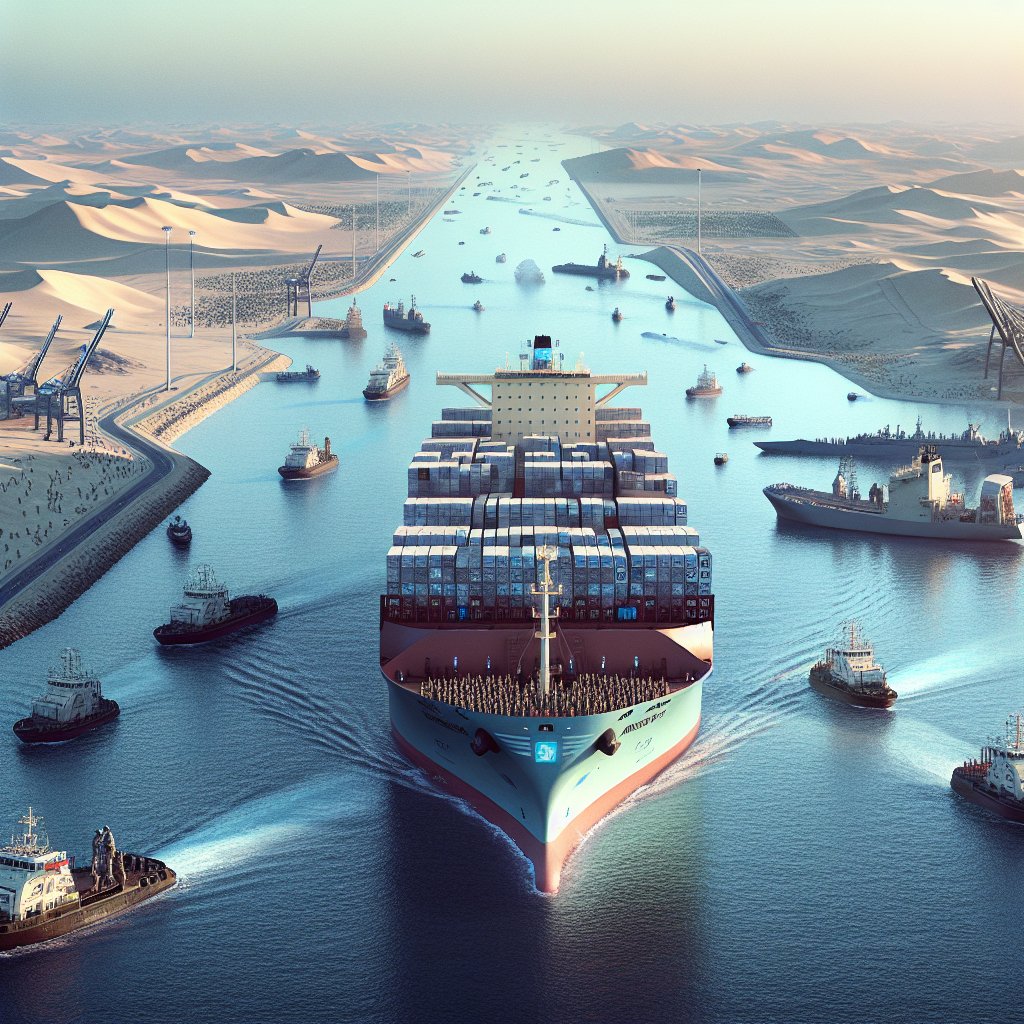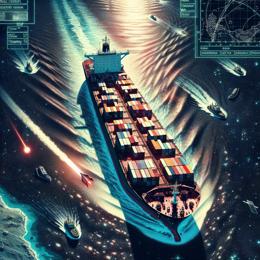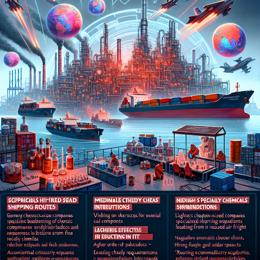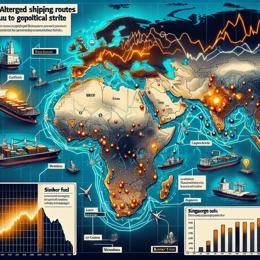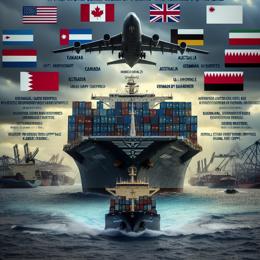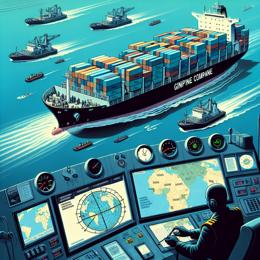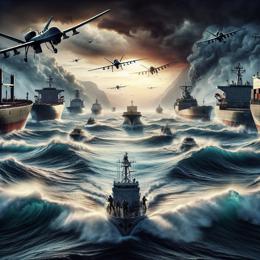Content created by AI
Maersk Evaluating Red Sea Sailings Following Houthi Attack on Container Ship
Maersk, the Danish shipping behemoth, is poised to make a crucial decision following an aggressive incident in the Red Sea that has raised questions about maritime security and trade route viability. The company announced that it would determine whether to continue its Red Sea sailings through the Suez Canal or divert ships around the African continent via the Cape of Good Hope in the aftermath of an attempted boarding by Houthi militants on one of its vessels—the Maersk Hangzhou.
In an event that underscores the perils shipping lines face in some of the world's most crucial trade lanes, the US military intervened, thwarting the attack by repelling the assailants, resulting in the death of 10 militants. This incident has prompted Maersk to halt all Red Sea sailings temporarily, raising concerns about the implications for global supply chains, which lean heavily on the timeliness and security of these passages.
The Maersk Hangzhou itself, while struck by an unidentified object during the raid, proceeded towards the Suez Canal, according to LSEG shipping data, marking a resilient continuation amidst troubling circumstances. However, beyond this single ship, the ripples of the conflict touch a significant portion of Maersk's fleet: more than 30 container vessels awaited instructions for their Suez transit through the Red Sea, while 17 others were put on hold.
The Iranian-backed Houthis, claiming parts of Yemen, have been targeting international shipping routes since November as a show of support for Hamas amid the conflict in the Gaza Strip. These aggressive maneuvers led major shipping companies, including Maersk and Hapag-Lloyd, to initially forgo Red Sea routes in December. Despite the later reassurance brought on by the US-led naval presence, Friday's assault derails this tentative confidence, pulling the region back into question.
At stake in this intricate geopolitical and logistics challenge is not just the safety of the crews and vessels but the broader implications on trade economics. The Suez Canal serves as a lifeline for approximately one-third of global container shipping traffic, making its viability a linchpin for the international market.
Rerouting ships away from this Egyptian manmade marvel means navigating around Africa's southernmost point, culminating in up to $1 million in additional fuel costs for each Asia-Northern Europe round trip, a hefty tariff on an already strained global shipping industry trying to recover from the impacts of the COVID-19 pandemic.
In the wings of Maersk's decision lies MSC, the Mediterranean Shipping Company, which continues to redirect its fleet via the Cape of Good Hope. The company has yet to respond to recent developments, a silence that hangs heavily as others in the industry eagerly await Maersk's impending reevaluation.
Hapag-Lloyd mirrors the hesitancy, sticking to the safer but lengthier African circumnavigation while promising a Tuesday update. The collective pause of these shipping leaders accentuates the gravity of the security threat and the decisions at the helm that could redefine the route maps for international maritime trade.
As Maersk deliberates, the shipping world holds its breath, awaiting a decision that could signal the trajectory for future transit strategies and potentially reshape the formation of global maritime trade routes in the face of persistent threats.
